Originally revealed as Project Athia during the PlayStation 5 Showcase in June 2020, Forspoken was touted by Square Enix as a new blockbuster IP featuring A-list Hollywood writing and casting combined with the latest, greatest technologies in the industry. Despite the high expectations for this game, the marketing for Forspoken was fraught with numerous missteps that put off many potential players ahead of its release.
Despite the game being developed by Square Enix’s Luminous Productions, the Japanese studio best known for developing the highly successful Final Fantasy XV, there was more focus on the Hollywood talent attached to the game which felt like a desperate attempt to assign some sort of unearned prestige.
Even though Forspoken was making strides within the video game industry by featuring a female person of color as the lead protagonist of their new IP, Square Enix would lean into tired, overused stereotypes by calling Frey’s walk “hip-hoppy”.
Footage of the game looked repetitive at times and barely featured any story content, and the demo released actively turned off a lot of players because of the poorly explained controls and bland map.
When I finally got my hands on Forspoken, I genuinely expected the worst, but was pleasantly surprised to find myself wholly enjoying the game despite the many issues present in the game.

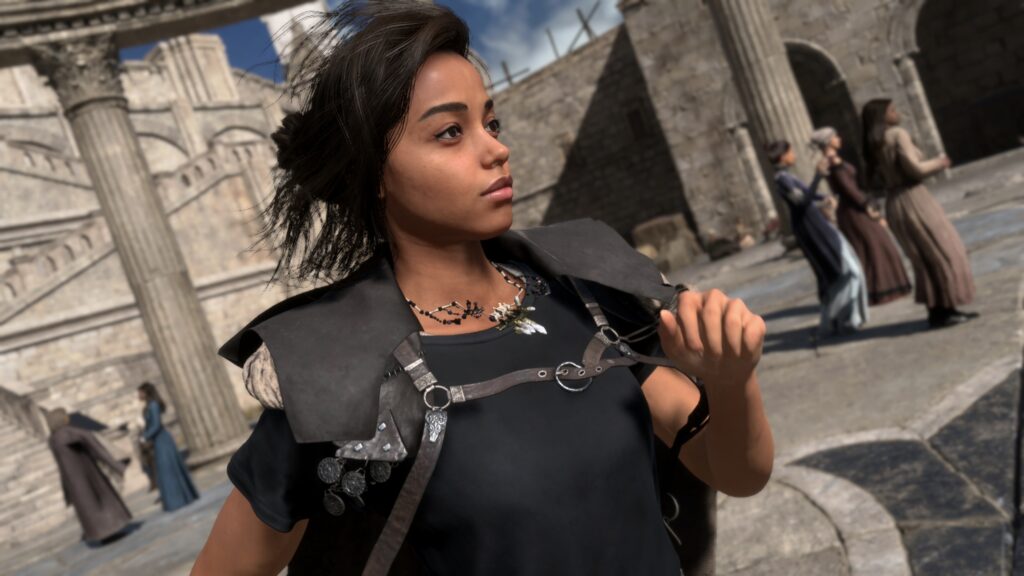
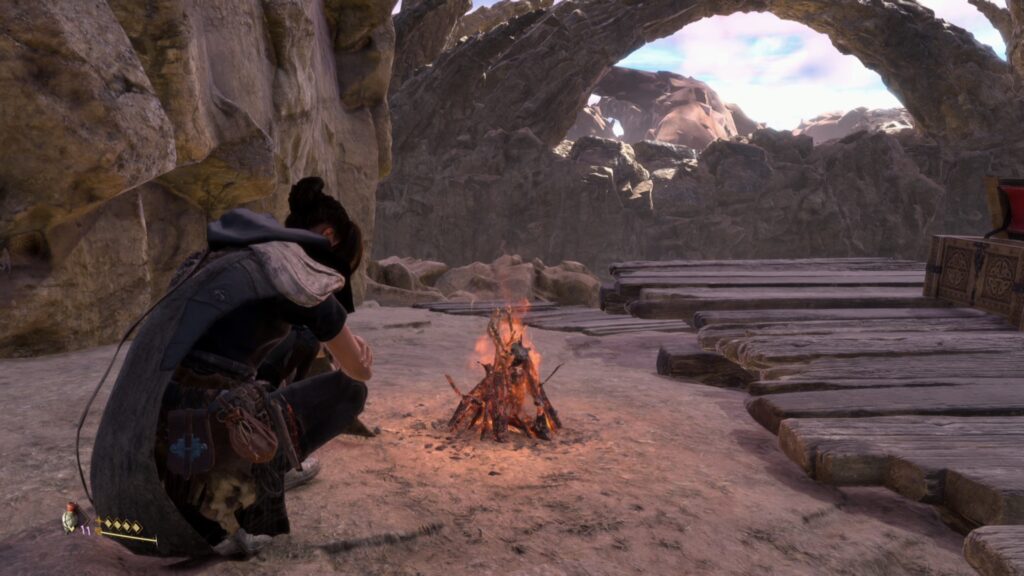
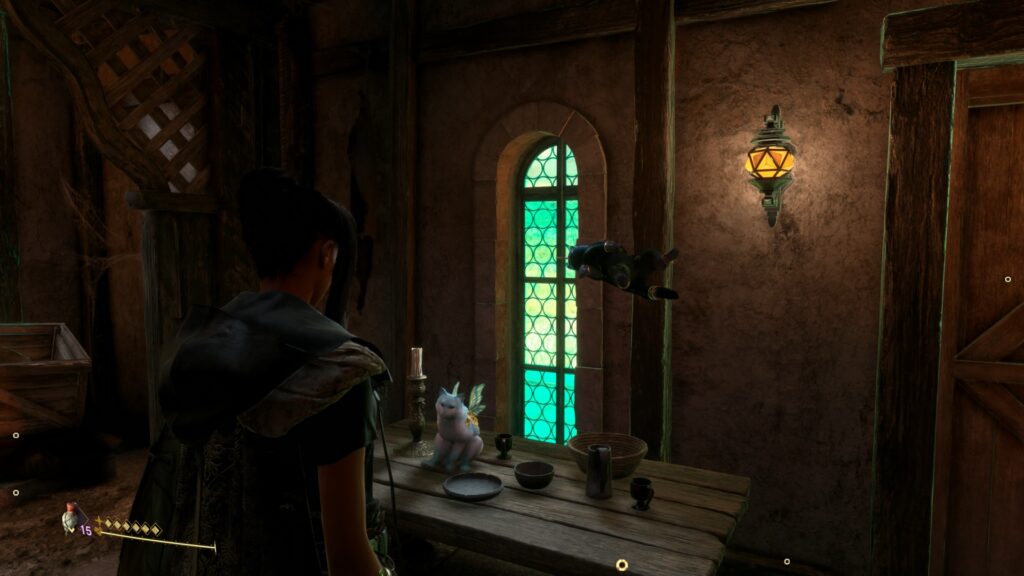
Forspoken plays out from the perspective of Frey Holland, played by actress Ella Balinska of Charlie’s Angels (2019) and Resident Evil (2022) fame. She is a street-toughened orphan living in New York with nothing to her name except a few designer sneakers, an old copy of Alice in Wonderland, and a Balinese cat named Homer. The game opens on a court trial where Frey is given one last chance to straighten out her life as an early Christmas gift by a sympathetic judge, but due to her involvement with a local street gang, she finds herself desperately seeking to flee the city and start a new life with her beloved cat.
Before she is able to leave New York, her apartment building gets burned down by the gang alongside the money Frey had saved to be able to flee the city. Down on her luck with nobody to turn to, Frey finds herself thrust into the world of Athia thanks to a mysterious portal and her new, unwanted companion, Cuff…or Vambrace, as he would prefer. Cuff, played by Jonathan Cake, is a magical bracelet that has attached itself to Frey against her will, but he offers to lend Frey use of her power in order to protect herself from the strange, corrupted monsters in Athia.
You see, this fantastical world is plagued by a mysterious blight called the Break, a magical fog that changes living beings into zombie-like monsters, and only Frey can enter the Break without being corrupted by it seemingly because of her ability to wield magic thanks to Cuff. As she is introduced to Athia, Frey finds herself the reluctant protector of Cipal, the final bastion of humanity in Athia, and due to Cuff’s urging, she takes on the task of finding the former rulers of the world—the Tantas—in order to kill them and stop the Break for good.
As Frey journeys through Athia to seek out the four corrupt Tantas, she slowly learns about her own mysterious past and about the people of Cipal despite her insistence that she does not care about anybody but herself and only wishes to return to New York. Throughout the story, Cuff serves as something of a contentious guide to Frey, urging her to be more sympathetic towards the feelings of others and to become their hero despite her desires to stay as unattached to people as possible. Their relationship starts off as begrudging and snippy, but slowly it seems as though the two begin to understand each other and their aggressive quips turn slightly more endearing. Ella Balinska delivers a great performance alongside Jonathan Cake, and it is their character’s relationship that kept me engaged for the bulk of the game due to the charm present in their performance.
In fact, many scenes are elevated by the voice cast in what is otherwise bland and corny dialogue. Forspoken isn’t breaking the mold with its script, and instead relies heavily on the vocal talent to carry the burden of giving believable deliveries of the otherwise awkward dialogue present in the game. Moments like when Cuff is espousing commentary on the nature of destruction and Frey responds with “You’re fucking stupid” would otherwise sound cringey if it wasn’t for the humorous delivery of the lines by Balinska and Cake. Despite the wealth of boring to awkward dialogue, there are moments in the Forspoken that are really well-written, though. There is a particular moment when Frey is arguing with one of her new Athian friends, Auden, that stood out to me as feeling really grounded and relatable unlike many of the scenes in the game.
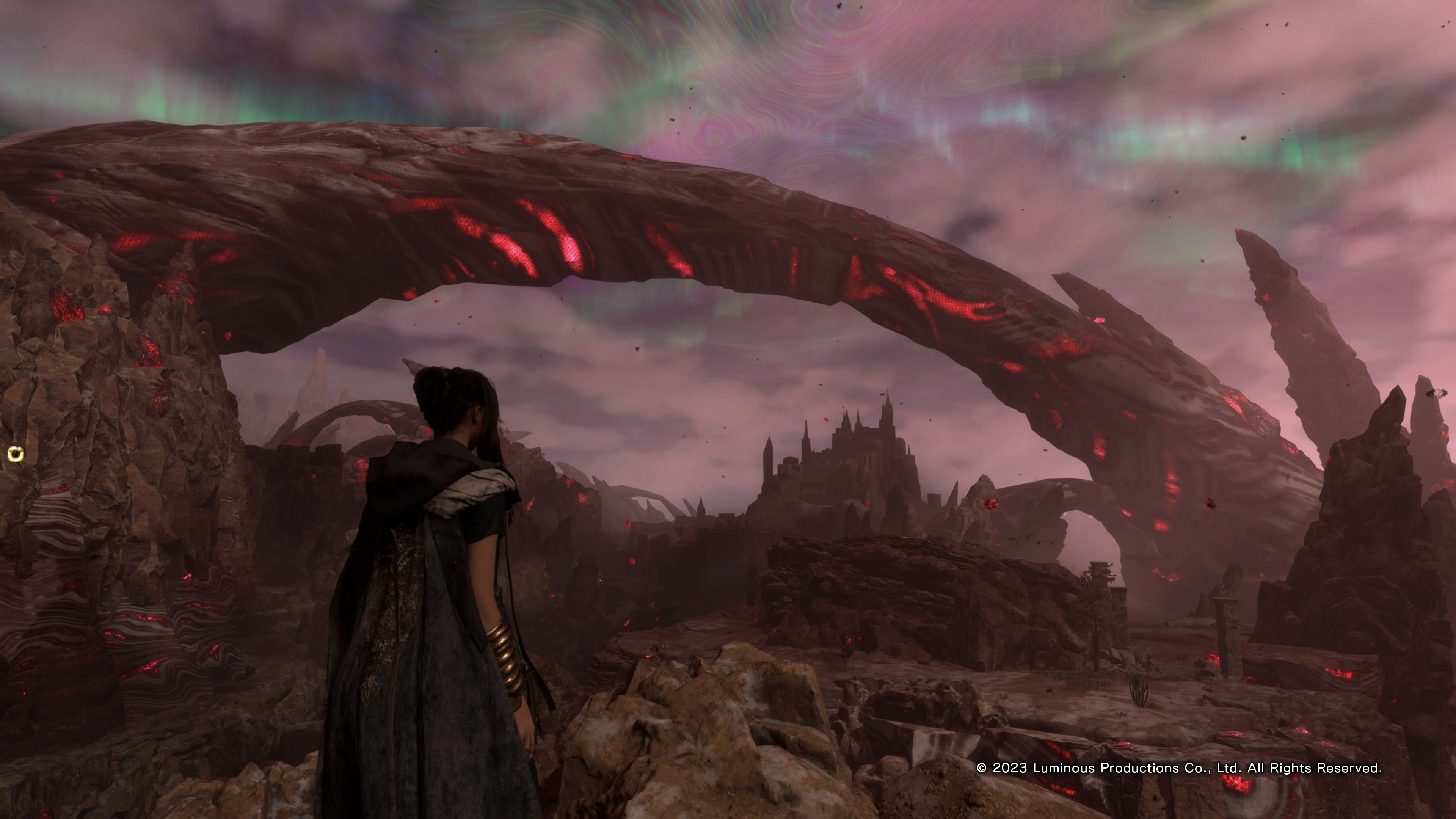
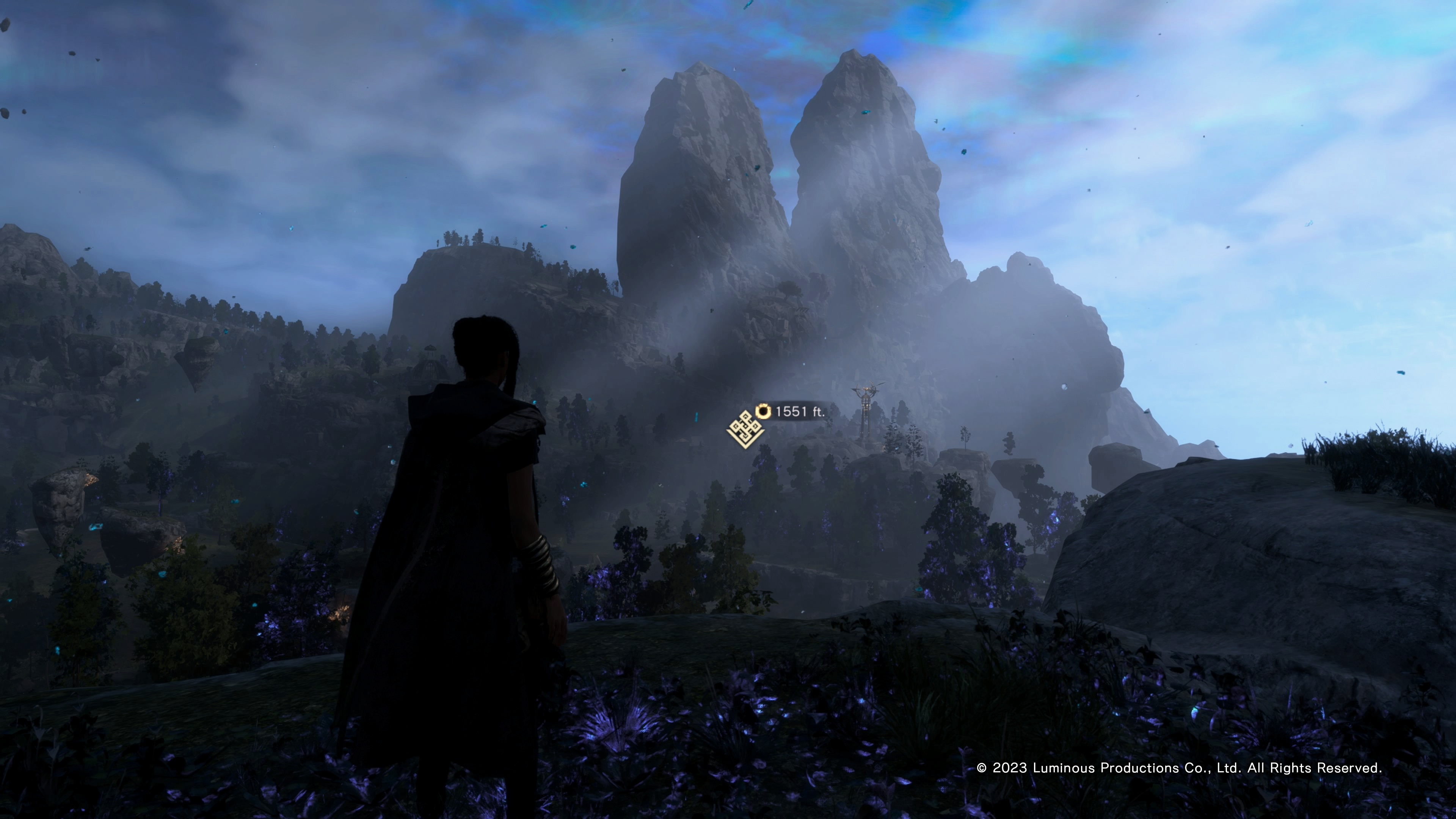

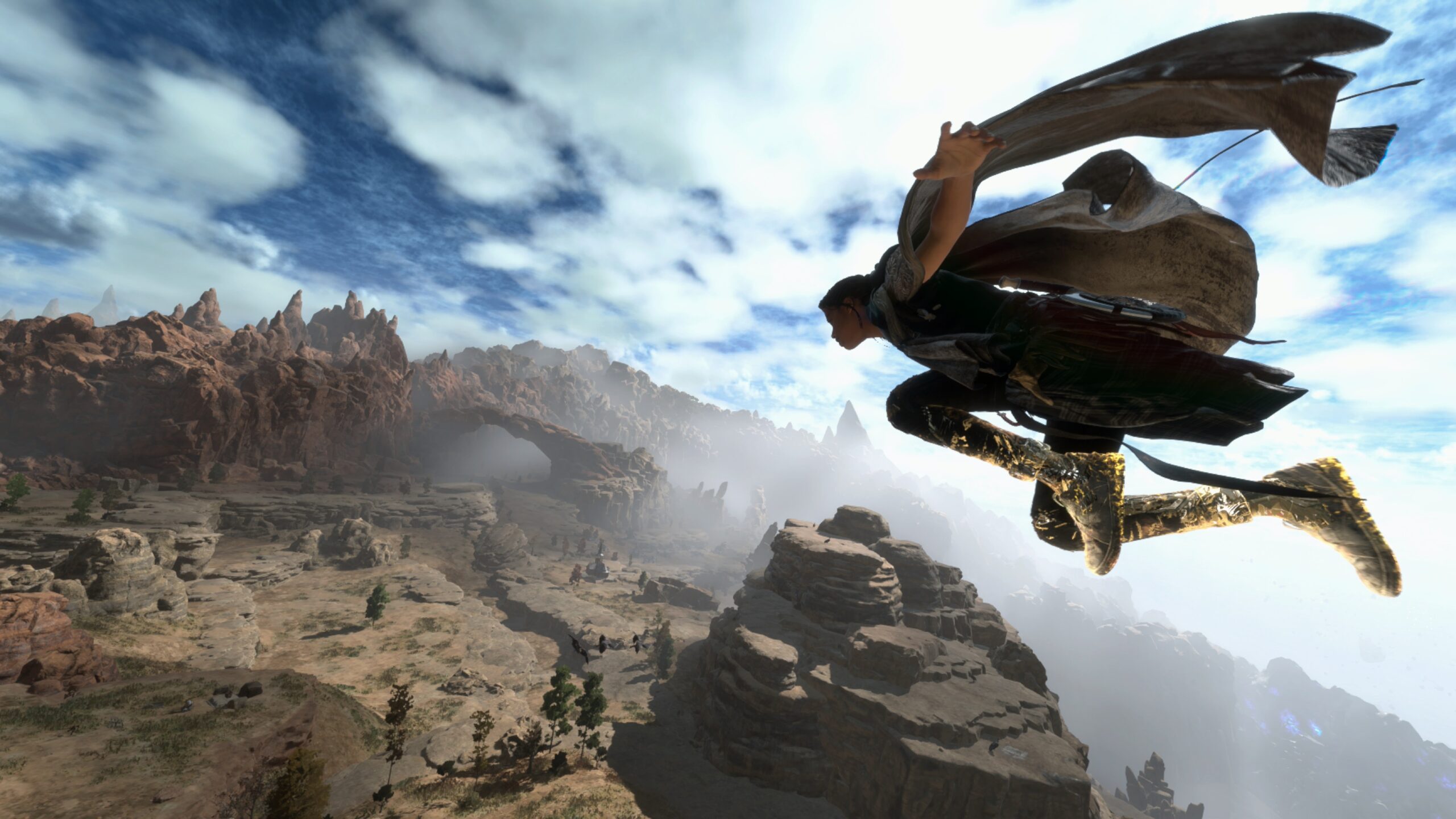
Forspoken’s themes of self-discovery, personal responsibility, and familial love resonate strongly throughout the story, and it is within these themes that the heart of the story is present. Frey frequently feels out of place within Athia, and spends much of her time trying to absolve herself of any duty or responsibility to protecting the people due to her past as an orphan without anybody to rely on, but the denizens of Cipal push their hopes and expectations on her. It forces Frey to reconcile her distrust in others with the newfound purpose she has found. Being in a world filled with orphans in their own right—people who have lost their loves ones, their beloved matronly rulers, their homes—Frey slowly realizes she has gained a family with her new friends and companions.
Frey also struggles with resentment towards her mother who she feels abandoned her, and her complicated feelings towards a person she never had in her life serve as the catalyst for many of her actions in the game as she uncovers her past. Auden’s relationship with her own father, Robian, serves as a foil to Frey’s seemingly nonexistent relationship with her mother as Frey witnesses the unconditional love between the pair despite their years of separation due to the Break. It is some of the more honest writing present in the game, and it deserved more focus than it was given.
The first dozen or so hours of the game focus heavily on Frey’s quest to fight Tanta Sila and Tanta Prav, and while the beginning of the game is delivered in a slow, methodical manner in order to ease players into Athia and its ever-present mysteries, it feels like once the game reaches the conflict with Tanta Olas, the developers were beginning to run out of time to develop the game. In Chapter 11, the game grinds to a halt in order to force-feed bland, static narration to the audience and get them and Frey up to speed on the truth behind the Break before jumping right into the final battle of the game. This is a similar issue Final Fantasy XV had with its story—the game spends hours developing a drawn-out first act that suddenly railroads the player into the final act. The twist of Forspoken is also a bit unearned as it feels like it comes too suddenly, further reinforcing the feeling that Luminous Productions ran out of time and had to rush to bring Forspoken to an end.
Despite the underbaked story, the game truly shines in its intricate and engaging gameplay system. Frey starts the game using earth-based Purple Magic, and players can shift between defensive and offensive magic by using the shoulder buttons to pull up a spell wheel. Once Frey defeats a Tanta, she gains their abilities, which unlocks new magic types like Fire, Water, and Lightning-based spells, and each of these magic types also unlocks new traversal abilities that allows players to explore even more areas of Athia.
The highlight of Forspoken is Frey’s parkour magic, which allows players to quickly dash and run around the map with free-flowing movements that are only truly limited by a stamina meter, although it recharges quickly, so players are never slowed down for long. Running around the world of Athia feels like the one thing Luminous Productions wanted to make feel intuitive and engaging, and it was genuinely one of my favorite things to do when I wasn’t playing through the story.
That isn’t to say that there aren’t issues with Frey’s mobility, though. Sometimes when you are trying to run or walk to certain areas, Frey will not stop immediately which makes it hard to navigate her to treasure chests, interactive spots, or specific perches. It is also inconvenient to use in combat as the flow of combat is interrupted when you use her parkour magic to run or dodge away from an enemy attack. It feels like you can only ever fight or flee with no real balance to blend the two together to elevate the combat to a higher level. Also, her parkour magic takes away a lot of the engagement with the combat because players can just run away from an enemy without little consequence, especially during Breakstoms when more powerful enemies are spawning. These moments lack any sense of foreboding or urgency because Frey can just flee them without consequence.
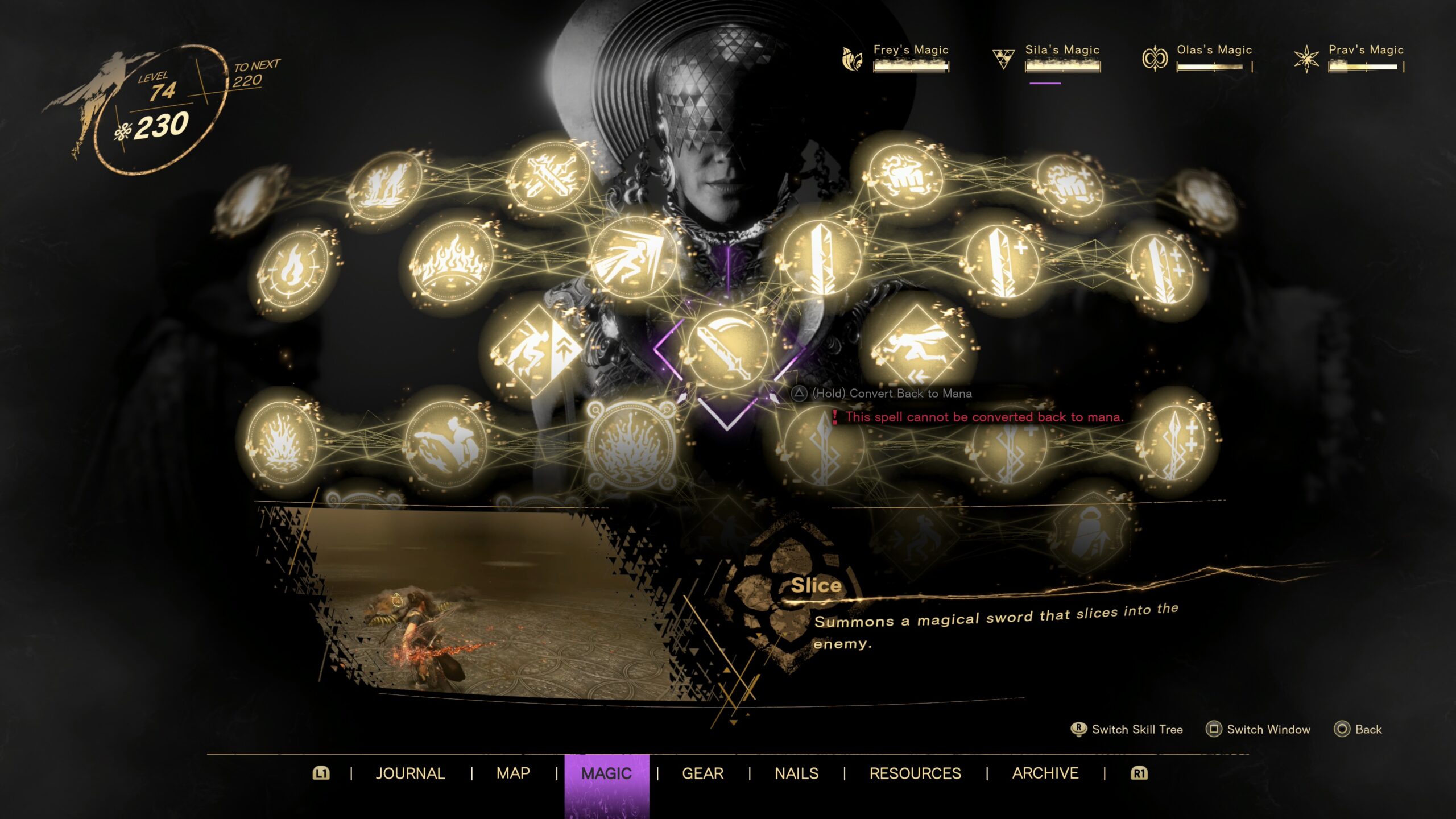
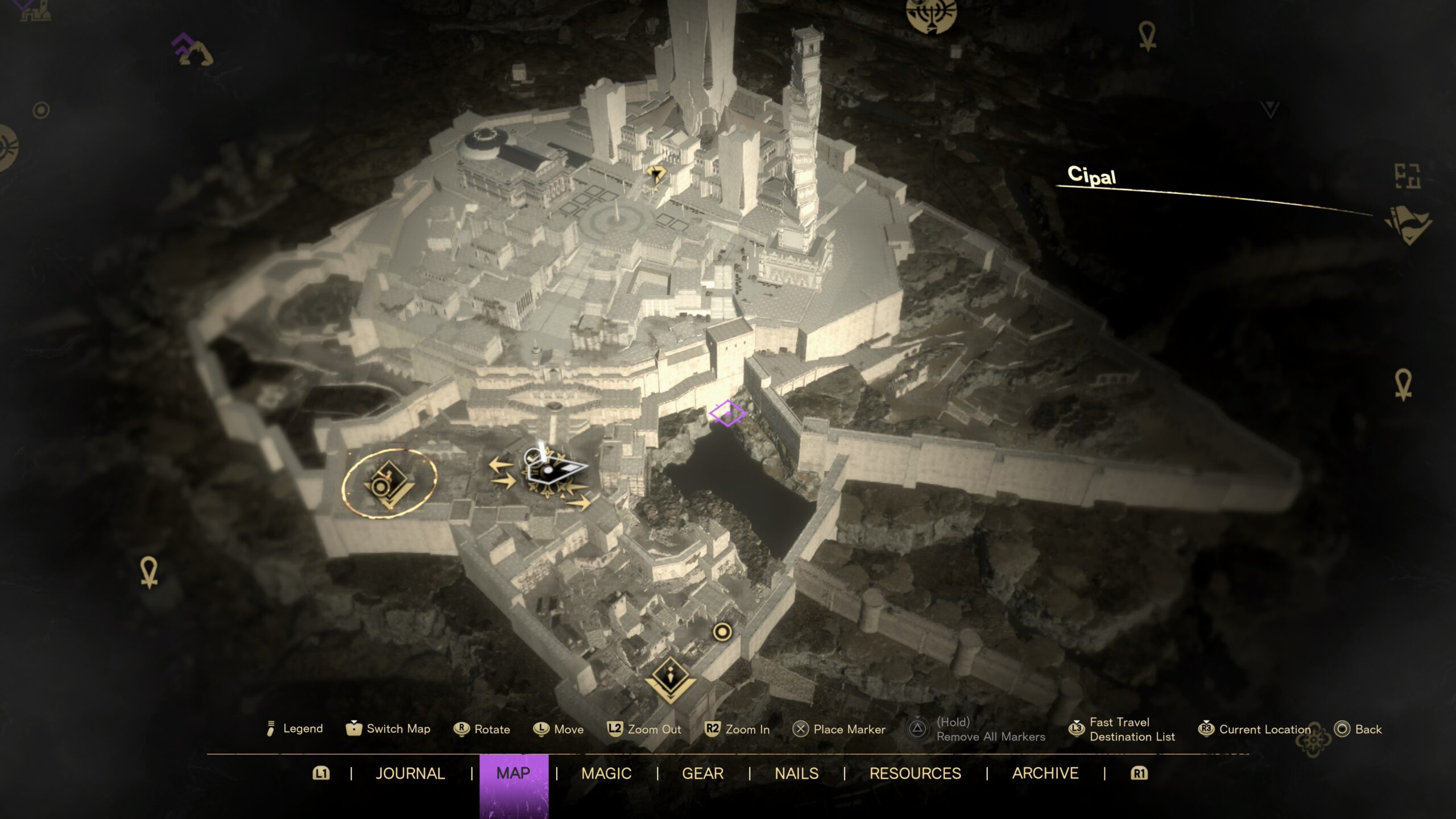
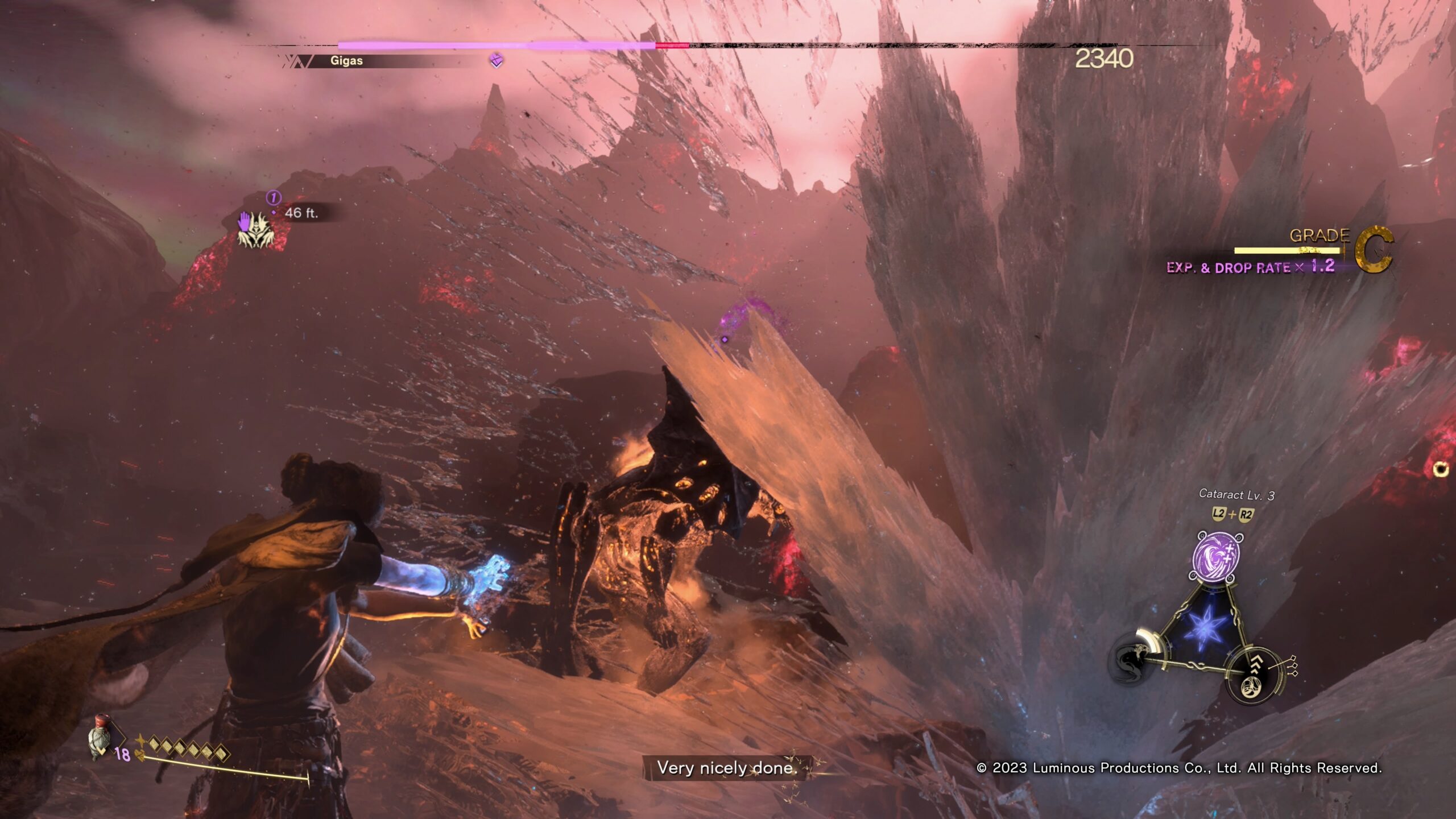
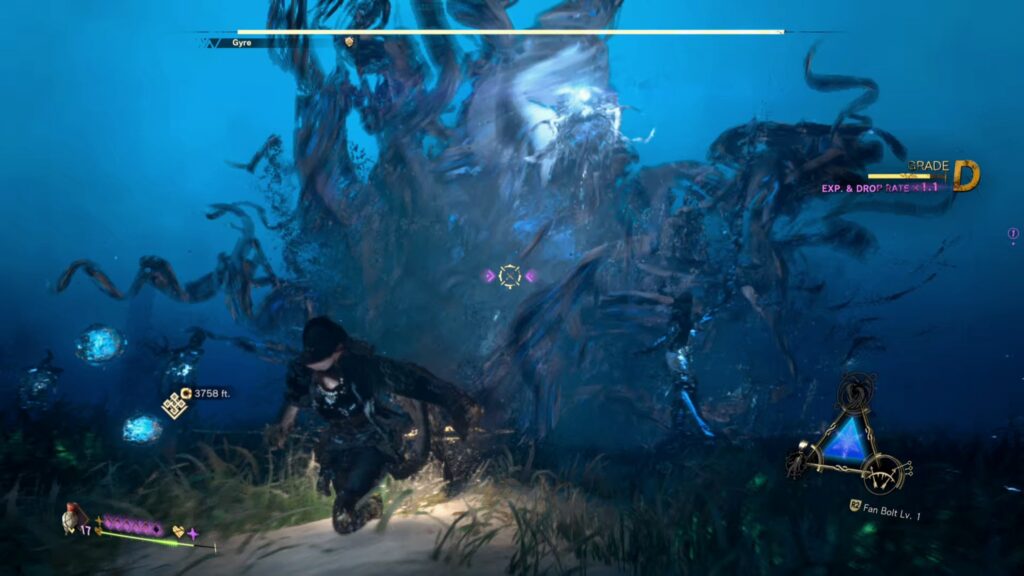
The world of Athia itself is alluring with each of the Tantas’ nations having its own color scheme and geographical features. The highlight of exploring Athia is being able to see areas like stunning rocky desert-like terrain of Praenost bathed in red hues or the verdant forest land of Junoon. The story only allows players to explore perhaps 15% of the world map, and it is littered with chests, dungeons, and other key points that serve to increase Frey’s magical abilities. Despite the impressive vistas and sheer abundance of things to find on the map, the world itself is empty and the lack of additional story quests throughout the map makes the world of Athia feel barren. This can be explained by Cipal being the main hub of the game, but it does not make it any less frustrating. The map could have been scaled down in order to provide a tighter, more focused experience while exploring Athia, but instead becomes a bit mindless as players are left to navigate a massive open world without much purpose behind it. Most objectives on the map are repeated tasks that utilize the same assets like the safe houses or monuments, and they quickly become boring to find, making them all blur together.
While the world map shines, the character models present in Forspoken range from great to downright awful. Characters with greater importance, like Frey’s steadfast friend Auden, look awkward and poorly modeled, whereas the Tantas themselves or the variety of adorable cats present in Athia are wonderfully rendered. Forspoken also seems to be lacking in high-quality cutscenes, instead defaulting to boring static scenes for quest events where characters stand around and talk. It is small details like this that would take me out of the game.
The side quests in Forspoken are largely unforgettable, too. A number of them are fetch quests that have you running around Cipal or take you outside of the city to find some random, unnecessary item. The best quests are the cat quests that have Frey chase after the strays until they give Frey a creepy looking doll that can be exchanged at various shops for items. While that sounds boring, the cats let you pet them after the quest is over, and that is enough to make it worth the hassle.
Bear McCreary (God of War 2016, Lord of the Rings: Rings of Power) and Garry Schyman (BioShock, Destroy All Humans!) are the lead composers for Forspoken, and while they are both highly talented musicians with some unforgettable contributions to the video game industry, their compositions in Forspoken are hardly of note. The single standout out of the soundtrack is “Frey’s Theme” composed by Bear McCreary. The haunting overtone chanting by the female vocalist is paired with an incongruent mix of modern urban beats and a crescendo-ing orchestra which perfectly encapsulates Frey’s complicated relationship to Athia and New York.
In spite of the flaws I mentioned, Forspoken impressed me more than I was expecting due to the variety of magic Frey can wield including her parkour abilities used to traverse Athia. The story was hardly as contentious as I thought it would be, and is carried on the back of Ella Balinska and Johnathan Cake’s performances despite some poorly paced stretches. It’s a game full of interesting ideas full of potential, yet feels underbaked as those ideas aren’t given enough room to rise. All that said, I came away from Forspoken thinking about the future of a potential franchise that features Frey’s adventures, should Luminous Productions continue their adventures in Athia.
Version Reviewed: PlayStation 5
Disclaimer: Review code for Forspoken was provided by the publisher Square Enix.
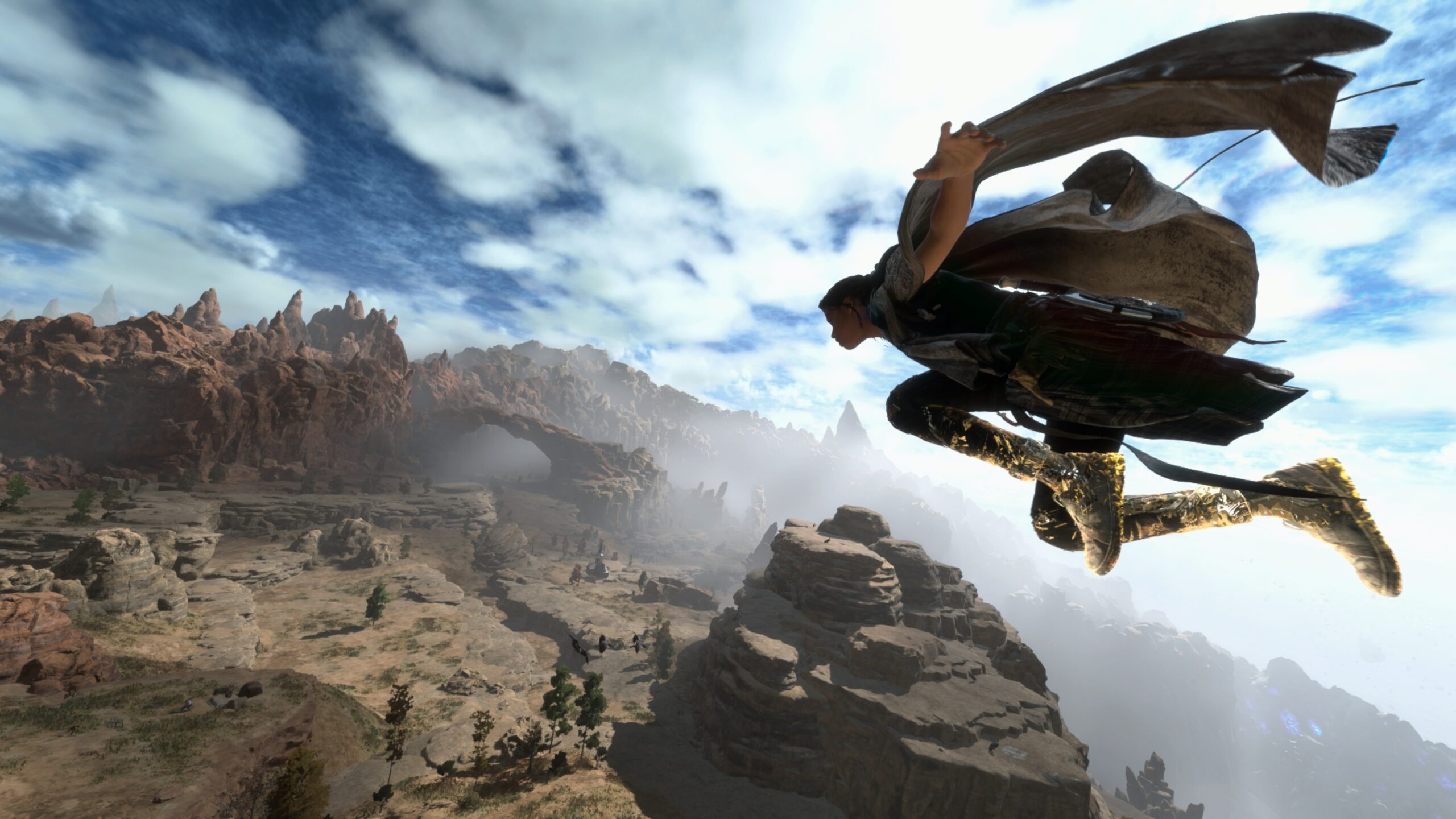
Recent Comments